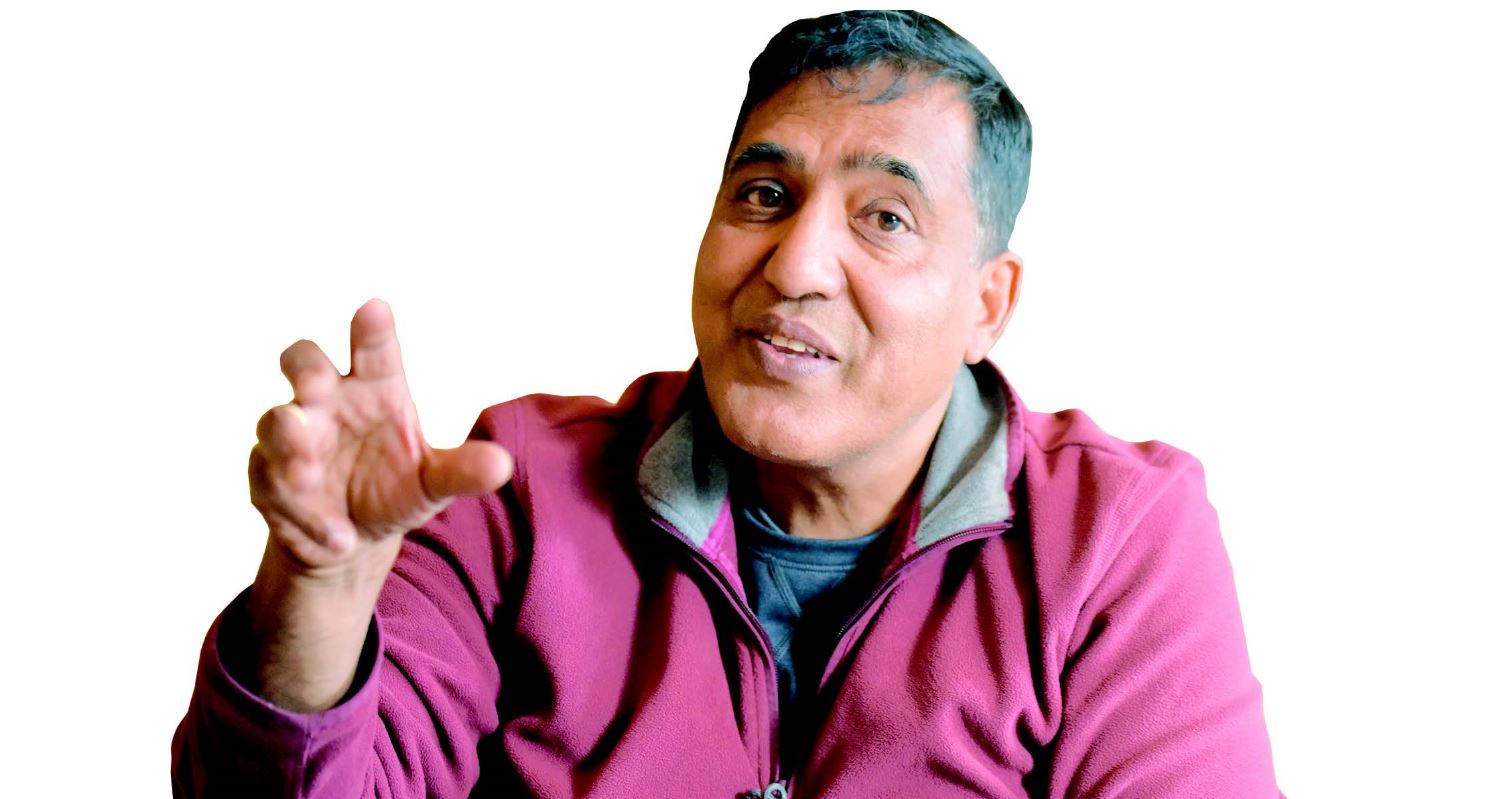My Vision for Nepal | Full realization of inclusive, diverse, federal, and secular Nepal

Full realization of inclusive, diverse, federal, and secular Nepal
Three ways to realize the vision:
1) By restoring political accountability.
2) By having the courage to admit our mistake and learn from it.
3) By reflecting on our spiritual values, and the meaning and purpose of the institutions we serve.
I have had the opportunity to work with the government and political parties and participate in various political movements. All this while, I have always been struck by the diversity and plurality of Nepal, its ideas, heritage, and institutions. The constitution we have today also talks about inclusion, diversity, plurality and their place in the global setting. I thus want to see my country really embody the principles of pluralism, diversity, tolerance, and mutual respect.
Unfortunately, because of our geopolitical location and fragile political institutions, I find the realization of the ideal of a plural and tolerant society a little illusive. But I am optimistic that we will see such changes in our lifetime. So, again, I imagine a plural, diverse and tolerant Nepal.
The embodiment of these values is easier said than done in today’s partisan political climate. Yes, the political parties are organized around the concept of power and they need to compete with each other. But I wonder if anyone in the political leadership in Nepal questions themselves why they are in politics. I speak of politics in terms of its larger goal for the society and in fact for the whole of humanity.
Our everyday politics seems unconcerned with the larger public good. It has become a narrow, self-interest guided machine. We have a political system that gives us a big umbrella under which different ideas and possibilities are mediated through peaceful democratic means. But there has always been this debate in political science about what matters more: voice or number?
In the everyday democratic process, we have been informed that numbers matter, which is a utilitarian, and interest-maximizing side of politics. But so long as there is a single poor or hungry citizen, or a victim who has been denied justice, number is not an issue. We should devise certain structures or prepare such a political climate so that those at the margins whose voices are not represented are counted as well.
In a theoretical sense, our country was never colonized. But we have been unable to escape the political economy of geopolitics, imperialism, and colonialism. We were a larger part of the global and regional frameworks even as an independent nation state. Over time, we have lost our ability to project ourselves as the normative torchbearer of political values and principles. The solution is to practice active diplomacy and speak up on normative issues like climate, justice, discrimination and poverty. I want to see a more dynamic and participatory country in the global processes. We safeguard not only our interest but also our autonomy through active diplomacy and presence in the global arena.
The other thing is that our education system is in disarray. We have a state-private sector hybrid model. But I believe basic quality education should be the state’s sole responsibility. This is where my state has failed. In this pandemic, we also realize that public health is important. Our public health system is dysfunctional. I would like to see every Nepali covered by a universal healthcare insurance system.
Most importantly, the current pandemic and bad governance is defeating the very idea of a state in Nepal. Why do we need a state? For collective security and safety. But during this pandemic I see various policy failures due to bad governance. The state’s role can’t be ignored in a country like ours. The state is obliged not just to collect taxes but also to care for us. I thus imagine a bare-minimum democratic, welfare state.
Again, we see a collective failure of the Nepali state and society in these hard times. I haven’t seen any political or social leader publicly admit their mistake. Where is the accountability? The first step is to restore political accountability. By this I mean public accountability: do what you publicly commit to doing. This applies to both individuals and institutions. If you don’t do that, you have to bear the responsibility. One of the big challenges for Nepal is to ensure such public accountability.
In a democracy, the very idea of equality and equal opportunity and participation means anybody can become a leader. But the institutional arrangement of accountability is more important. People should constantly be questioning. Sometimes we expect too much of our leaders, but we forget our own responsibility. We need to be vigilant, as vigilance is the price of democracy. In our case, we see overall institutional decay. We need to find collective resolve to move ahead.
Where will this collective resolve come from? It comes from failures too. You have to have the courage to admit your mistake and to learn form it. Instead we in Nepal are headed towards a large failure of public service-delivery. If we are to improve, we need to change the way we do politics.
What has been missing in present-day politics and social discourse is deliberation on the meaning of collective life. It is hard to overstate the importance of institutions, of collective life. We have been too individual-focused. We never discuss why we are participating in individual and collective affairs. Why does one need to be a PM five times, or head a university repeatedly? We need institutions that evolve with time. We need to reflect on our spiritual values, the meaning and purpose of the institutions we serve, the meaning and purpose of being a political actor or any other work you maybe involved in.

Quick Questions
Which Nepali leader has come the closest to embodying your vision?
BP Koirala.
Biggest lesson from your time in government.
To fight for democracy is one thing, building a democracy is a completely different art.
A book on Nepal that has influenced you the most.
I will name two: Strategy for Survival, by Leo E. Rose; and Democratic Innovations in Nepal, by Bhuwan Lal Joshi and Leo E Rose.
related news
My Vision for Nepal | See Nepali women’s football team lift SAFF championship
April 18, 2022, 9:43 p.m.
My Vision for Nepal | A top global tourist destination
April 11, 2022, 6:19 p.m.
My Vision for Nepal | A clean country built on sustainable and socially inclusive waste management
April 5, 2022, 12:42 a.m.
My Vision for Nepal | Internationally acclaimed Nepali movies
March 28, 2022, 8:02 p.m.
My Vision for Nepal | Equal respect for all genders: male, female and queer
March 21, 2022, 7:11 p.m.
My Vision for Nepal | Economic growth and socio-economic development
March 14, 2022, 2:29 p.m.
My Vision for Nepal | Zero trafficking of Nepali people
March 7, 2022, 5:13 p.m.
My Vision for Nepal | A healthy, educated, and hospitable country
Feb. 28, 2022, 7:47 p.m.











Comments